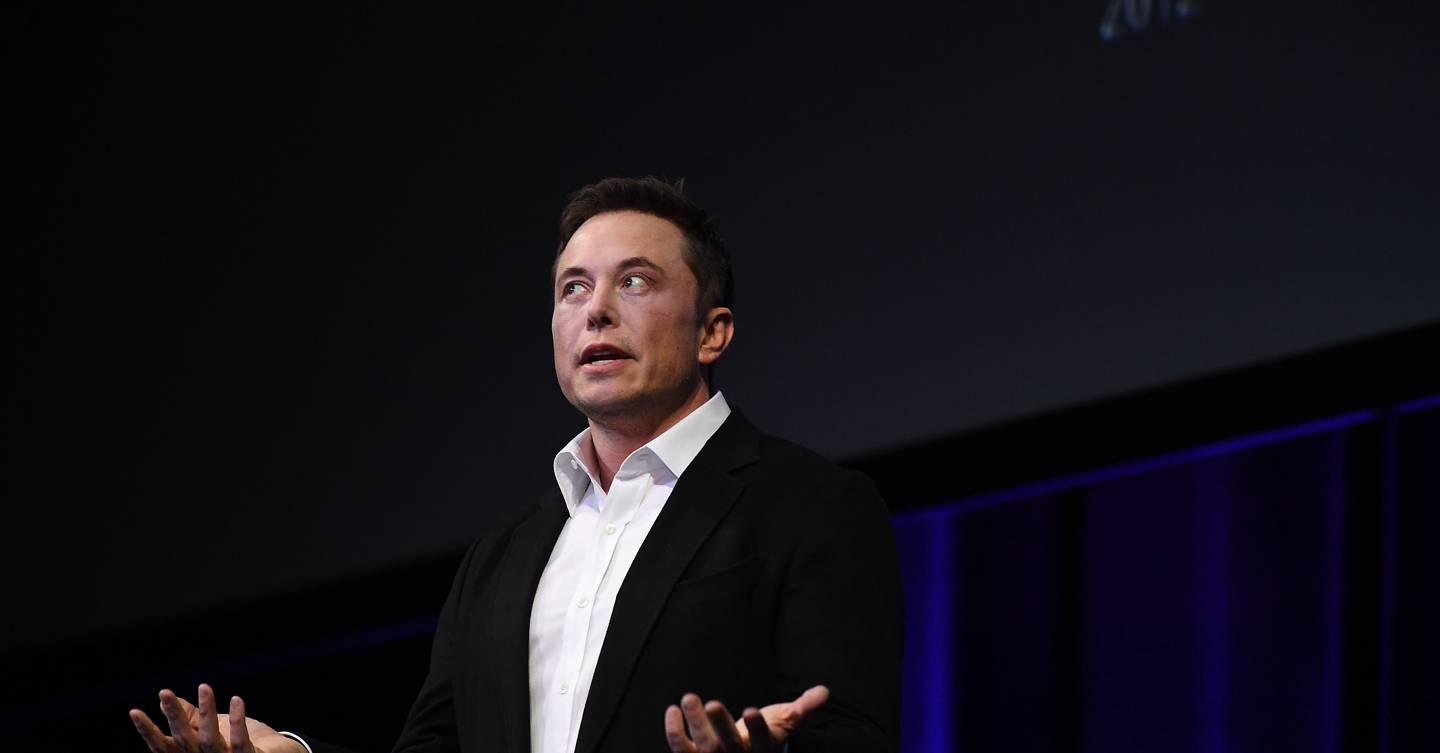August 2, 2018 at 12:20PM WIRED UK All the problems with Twitter's ban on Elon Musk parody accounts

Elon Musk is sitting in his multimillion-dollar Bel-Air mansion, cursing his nemesis. It is not the taxman, nor the Nasa scientists poo-pooing his plans for Mars. It’s not even the rescue diver who declared Musk’s homemade submarine “not practical” for saving the Thai schoolboys trapped in the Tham Luang cave last month. No, Musk’s nemesis is his evil twin. His evil, Italian twin: Italian Elon Musk.
We like to imagine that Elon Musk is petty – because, a lot of the time, he acts like it. The SpaceX and Tesla founder recently made headlines after baselessly calling the aforementioned hero diver a “pedo guy”, and was goaded into promising to fix the Flint water crisis after a tweeter told him “there's NO WAY you could help”. It makes sense, then, that Musk would be so enraged by an “Italian Elon Musk” Twitter parody account (sample tweet: “I send a the calzone into space!! I don’t pay a the taxes!! Ohhh!!”) that he forced Twitter to ban all Musk parody accounts, resulting in the site blocking Musk-a-likes en masse earlier this week.
It makes sense – but it’s not exactly the true story.
Twitter has cracked down on imitation-Musks. The Italian Elon Musk account was set up on June 15; by June 17 its creator had already lost his verified checkmark. When news of this spread, fake Musks of every nationality were born, but by the end of July, the larger public realised that putting “Elon Musk” in your username resulted in your Twitter account being locked.
“It got locked pretty much instantly,” says the 29-year-old creator of the fleeting account Scottish Elon Musk, who wishes to remain anonymous. “I only wanted to make the account because I thought it would be a laugh. I had no idea that Twitter would crack down so hard on what’s essentially a joke account.”
So what’s going on? Twitter claims it isn’t targeting Musk parodies specifically and that the locked accounts are part of a wider policy cracking down on malicious spam. For the last few months, spammers have been posing as Musk under his tweets by copying his display name and profile picture and luring unsuspecting fans to click links that trick them into sending ethereum and other cryptocurrencies, often with the promise of free giveaways. Musk himself commented on this phenomenon last month, tweeting that whoever was running the scams had “mad skillz”.
“As part of our commitment to serve the public conversation, we’re continuing to fight spam and other malicious behaviours on our service,” a Twitter spokesperson says. “We’re rapidly developing our response to be more agile and effective in detecting these behaviors and enforcing our policies… Alongside the Smyte team, we are exploring new tactics for detecting and removing malicious accounts as we scale our level of impact.” (Smyte, an abuse management company, was acquired by Twitter on June 21. Timing-wise, it doesn’t really explain why Italian Musk was unverified days before.)
Press coverage of this new policy has been Musk-centric, but it is clear other names are being monitored too. Vitalik Buterin, a co-founder of Ethereum, is so frequently targeted by crypto-spammers that his Twitter bio now reads “Not giving away ETH” and his username is “Vitalik Non-giver of Ether”. I created an account with an identical username and profile picture to Buterin’s at 11:47 on Wednesday; by 11:48, it was locked.
Nevertheless, some Twitter users question the policy, which appears to be quite a blunt tool to tackle a specific problem, and some of the parody account creators I spoke to remain convinced that Musk is getting special treatment. “It's pretty clear that Twitter has a special policy regarding Elon Musk,” says the person running the French Musk account (French Élon Musque), “Maybe he is actually pissed. He seems easily affected by public opinion.”
Robert, the 22-year-old owner of Irish Musk, says Twitter’s justification is “an obvious lie”. “Scamming is definitely a thing that's happening, but it's hardly unique to Musk... I just see it as a billionaire desperately trying to massage his ego,” he says. Irish Musk was permitted to remain on the site after Robert verified he was not a spammer by getting a code sent to his phone, and French ‘Musque’ remains because of the different spelling in his username. (If Twitter did want to crack down on parodies, it’s not doing a great job.)
Musk’s representatives did not respond to a request for comment on his role, if any, in the crackdown, but the incident perhaps says more about Twitter than it does about Musk. Many users point out that the site’s bullishness to crack down on the Musk scammers seems at odds with its apparent sluggishness to respond to other complaints such as sexual harassment and neo-Nazi accounts on the platform. (Critics note Twitter has the technology to do this – Nazi accounts are blocked in Germany, where they are illegal – but refuses to enact it elsewhere.)
As for the cryptocurrency scammers: a lot of them are now simply using the occasional Cyrillic letter to circumnavigate the Smyte system. What would Italian Elon Musk say?